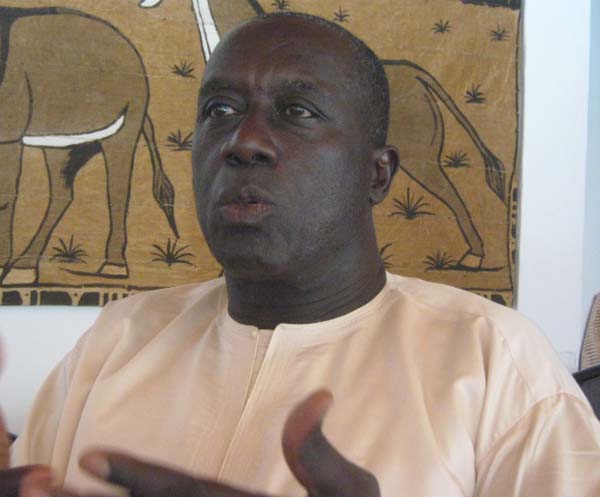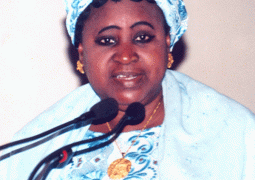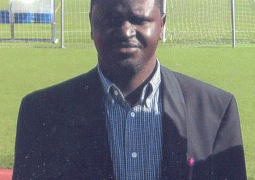
A leading member of the Senegalese opposition camp arrived in the country over the weekend for a private visit.
Landing Savane, leader of the Senegalese opposition "African Party for Democracy and Socialism" Andjef/PADS told journalists at a press conference held at the Sarge's Hotel yesterday that he is on a private visit to the Gambia and as a citizen of Senegambia.
Commenting on the current political situation in Senegal, Savane told journalists that the opposition camp in Senegal is currently faced with serious problems due to the fact that they are not yet sure if incumbent President Abdoulie Wade is going to change the current constitution, which according to him, does not allow him to stand in the next elections.
"Given the fact that Wade has the majority in parliament, he can change the constitution. But despite all that, there is a strong opposition against him. I myself oppose to the idea of changing the constitution and allowing Wade to win elections through constitutions different from the one that brought him to power", Savane said.
There are presently some 65 political parties in Senegal, most of which are marginal and little more than platforms for their leaders. The principal political parties, however, constitute a true multiparty, democratic political culture, and they have contributed to one of the most successful democratic transitions in Africa, even among all developing countries.
President Wade's election in 2000 ended four decades of Socialist Party rule since independence from France in 1960. But since his re-election in 2007, much of the speculation about who will succeed the 83-year-old leader has focused on his son, Karim Wade.
According to the Senegalese opposition leader, it is too early to make any specific decision ahead of the 2012 presidential elections in his country but warned that any attempt by Wade to change the constitution could lead to chaos.
"His (Wade's) support is declining. He has no longer any majority in the country. He can no longer secure full support of the people and his foreign policy is no more relevant", Savane added.
On February 25, 2007 President Abdoulaye Wade won 56% of the vote in a field of 15 candidates, with 73% of registered voters going to the polls. Twice-postponed parliamentary elections took place on June 3, 2007, but most of the major opposition parties boycotted them, allowing the ruling Senegalese Democratic party (PDS) and its allies to capture 131 of the 150 seats in the National Assembly that met for the first time on June 20.
In 2000 and 2007, Wade won open, peaceful, and highly competitive elections due to what many described as a strong Senegalese national desire for change after nearly 40 years of Socialist Party governments. Having come under tough scrutiny and criticism for not having realised many of his campaign promises, Wade has undertaken major public works projects that benefited him politically. In the March 22nd 2009 local elections held nationwide, the opposition made substantial gains, including the defeat of his own son, Karim, in Dakar.
Quizzed as to the problems facing the opposition in Senegal, Savane told reporters that there is no specific problem of the opposition, but alleged that the electoral system is being manipulated.
"If the electoral system is correct, the opposition will be able to win elections. I'm not sure if the ruling party cheated in the last election, but a lot of money was spent", he said, adding that the opposition is quite convinced that if all goes well in 2012, Wade would be defeated.
He noted that the fact that Wade having a lot of money at his disposal does not mean that he can win the elections in 2012. "He is no longer popular. The Senegalese people want him out", he said.
Savane however stated that despite being optimistic, the opposition has to overcome their selfish interest and look ahead to the 2012 presidential elections.
"The opposition has to unite, think together and put an end to Wade's regime. The current day to day life in Senegal is a clear indication that Wade has lost control of the country.
"There is a lot of corruption and the people need change because Wade is no longer able to meet their needs", Savane alleged.



